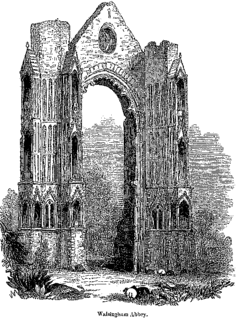I proposed the idea that the 'neo' phenom did not really come into things in England since there had ben no Neuhaus/Weigel/Hahn/Steubenville to get it all started and that the whole thing rested on the foundation of the political neo-con movement that started out (yes, not making it up,) Trotskyite. I don't think there would be any neo-Caths if there were no Buckley's etc. to give them a boost. And England's political history is very different from that of the US. I contend that there are really only two kinds over there. Marxist/sodomy-loving/feminazi anti-Catholics, (what we like to politely call "liberals") and Trads. The former having control of the institutions of the Church and the latter living like Old Narnians, mostly in hiding, and under the strict limits of the
But the Vicar is quite a bit smarter than me knows more Things and has read more Books. He writes:
I have been asking myself the question whether the phenomenon of the Neo-caths is uniquely an American one. Or, what is the origin of the Neo-caths? On reflection I think we must lay the blame squarely at the feet of Pope Paul VI. Towards the end of his pontificate he began favouring the sort of neo-patristic scholar who was also later advanced under the pontificate of John Paul II and ultimately ascended to the throne of St Peter with Pope Benedict XVI.
What Paul VI wanted was something, not traditional or neo-scholastic, that would put a brake on the inrushing hurricane of the modern world without initiating a reaction in favour of what most were so relieved to be rid of: hence, the neo-Cath. They were originally the scholars who migrated from the journal Concilium to the new journal Communio, "liberals" before the Council who were beginning to have doubts about where it was all going. And isn't a "neo-con" famously defined as a "liberal who has been mugged by reality."
Rome today is certainly rife with neo-Caths and modernist liberals, the twin forms in which the Council manifested itself and will continue to manifest itself until a new theological paradigm arises. (Hint: it will not be neo-scholasticism which was already fatally infected with modernity. Etienne Gilson and other medievalists demonstrated this, alas.)
Are there, then, more trads in England and, if so, why? There may be, although "more" is a very relative term indeed. They seem to be the same bunch of friends that keeps showing up on the internet. But it is plausible, not because England had no links with the American neo-cons (they did, in fact: what else was Margaret Thatcher, e.g.?) but because the English are (I would say rightly) somewhat squeamish about the continental philosophy that presently accompanies the neo-patristic synthesis.



No comments:
Post a Comment